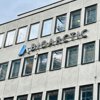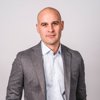Fritextsökning
Artiklar per år
Innehållstyper
-

The vaccine has saved 94 million lives – but measles is spreading again
A disease we once believed belonged to the past is now resurging in both Europe and the United States. In the shadow of growing skepticism and declining vaccination coverage, measles – which has claimed millions of lives throughout history – is making a comeback.
-

New findings on the diseases that crushed Napoleon’s army
As if cold, starvation, and typhus weren’t enough. New research reveals that Napoleon’s defeated army also suffered from paratyphoid fever and relapsing fever during the retreat from Russia.
-

Canada approves leqembi as global alzheimer’s drug race heats up
Leqembi has secured approval in Canada, further consolidating its global lead among disease-modifying Alzheimer’s therapies. The antibody is now authorized in 15 major markets — one more than its closest rival, Eli Lilly’s Kisunla.
-

A cluster contribution to European life science innovation and competitiveness?
-

Folkmedicin från 1700-talet kan bli modern cancerkur
En huskur från 1700-talet blev med tiden ett läkemedel mot hjärtsvikt. Nu ska forskare i Skövde pröva om digitoxin kan ha ytterligare ett användningsområde – som en möjlig behandling för en av våra allvarligaste cancerformer.
-

Gene therapy restored hearing in children with congenital deafness
Eleven out of twelve children with congenital deafness showed improvements in a study testing Regeneron’s gene therapy for hereditary hearing loss. The U.S. company now plans to apply for approval of the gene therapy.
-

How the Nobel discovery is used in drug development
Regulatory T cells keep the immune system in check, a discovery now awarded the 2025 Nobel Prize in Physiology or Medicine. Qiang Pan Hammarström explains how this finding is being applied in today’s drug development, and what challenges remain.
-

Many discontinue obesity medication – new study highlights the reasons
A new study maps out the most common reasons why patients choose to stop taking obesity medication prematurely. “Obesity medication discontinuation reverses health benefits and prompts weight regain in most individuals,” says Hamlet Gasoyan, one of the researchers behind the new study, in an interview with Life Science Sweden.
-

Sarah Lidé: ”Artificial intelligence must not replace authentic interactions”
Artificial intelligence must never become a replacement for authentic, even if messy, interactions with our fellow humankind, Sarah Lifé, Deputy CEO at Medicon Village Innovation, writes in a column.
-

Genmab to Acquire Dutch biotech for USD 8 Billion
Danish pharmaceutical company Genmab has agreed to acquire Dutch firm Merus, a developer of cancer therapies, for USD 8 billion, equivalent to nearly SEK 75 billion.
-

Phase III win for Hansa Biopharma: “We Are Thrilled”
Swedish biotech Hansa Biopharma’s transplant drug imlifidase has met the primary efficacy endpoint in a registration-enabling Phase III study in the United States.
-

Astra Zeneca’s asthma drug nears approval for sinus inflammation
Astra Zeneca’s drug Tezspire receives positive opinion from the European Medicines Agency (EMA) for the treatment of chronic rhinosinusitis with nasal polyps.
-

Heart Monitoring in Breast Cancer – Essential or Excessive?
Trastuzumab and related drugs have transformed breast cancer treatment and dramatically improved survival rates. But the close cardiac monitoring required during treatment can be a heavy burden for both patients and healthcare systems. Dr. Andri Papakonstantinou is working to refine how doctors identify which patients truly need intensive follow-up.
-

Astra Zeneca pauses multi-million investment in the UK
Astra Zeneca has paused a planned investment worth $270 million. It is the latest pharmaceutical company to pull back on its commitments in the UK.
-

Novo Nordisk tells staff to return to office
At the turn of the year, Novo Nordisk employees will no longer be able to work remotely. According to the company’s new CEO, the move is intended to accelerate decision-making and improve commercial execution as competition in the obesity drug market intensifies.
-

Stamcellspionjären Jonas Frisén: ”Vi har hittat cellerna som gör nya nervceller”
Nybildningen av nervceller i hjärnan kan variera kraftigt från person till person, visar ny forskning. ”Det är något vi är jätteintresserade av – vilken betydelse det har och vad det beror på”, säger stamcellsforskaren Jonas Frisén.
-

Orexos pulverformulering öppnar för GLP-1 via näsan
Uppsalabolaget Orexo har med lovande resultat prövat sin pulverbaserade formuleringsteknologi på semaglutid – vilket kan bana väg för ett GLP-1-läkemedel som intas nasalt.
-

Efter förseningen – nu har Ascelia lämnat in sin FDA-ansökan
Efter flera turer och en studie som fick göras om har nu Ascelia Pharma till slut lämnat in en ansökan om marknadsgodkännande i USA för kontrastmedlet Orviglance.
-

Eli Lilly Recruits Leading Swedish Researcher Kaj Blennow to Head Alzheimer’s Project
Eli Lilly recruits Kaj Blennow, leading Alzheimer’s researcher, as VP of neuroscience biomarker development.
-

Billion-Dollar Deal Sends BioArctic Soaring
Swedish Alzheimer-focused company BioArctic has entered into a licensing collaboration with Novartis regarding a technology aimed at enhancing efficient drug delivery to the brain. The BioArctic stock surged significantly following the announcement.
-

Roche joins Medicon Village
Roche and Medicon Village Innovation have signed an agreement for deeper collaboration. “The fact that Roche is now becoming part of this environment further strengthens our concept,” says Medicon Village Innovation CEO Petter Hartman.
-

Anocca raises SEK 440 million ahead of clinical cancer trial
Swedish cell therapy biotech Anocca has successfully raised SEK 440 million in a new funding round to support upcoming clinical trials in pancreatic cancer.
-

Wegovy approved in the U.S. for treatment of liver disease
The U.S. Food and Drug Administration (FDA) has granted accelerated approval for Novo Nordisk’s drug Wegovy to treat the serious liver condition known as MASH. The decision strengthens the company’s position in the field of metabolic diseases.
-

The top five most expensive drugs in 2025
New advanced therapeutic medicines are reaching the market, but their price tags remain exceptionally high. This year’s ranking of the most expensive drugs in the US reveals a common denominator: all are gene therapies administered as one-time treatments.